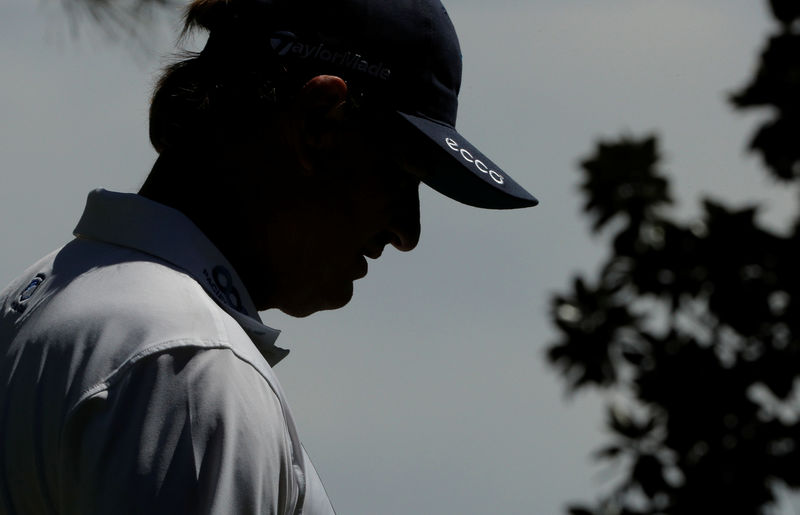By Andrew Both
(Reuters) - A quarter century after the Presidents Cup began with high hopes that it would one day rival the Ryder Cup as golf’s premier team event, it remains a relative minnow on the global calendar after a series of one-sided American victories.
Created by the U.S.-based PGA Tour, the Presidents Cup largely copied the Ryder Cup format. Yet instead of the U.S. playing Europe, the Americans were pitted against an International team comprised of players from the rest of the world.
The 13th staging of the biennial event will be held at Royal Melbourne starting exactly a year on Wednesday and a glance at the respective world rankings of the likely players suggests that the Americans are poised to continue their dominance.
"I fear for the immediate future of the Presidents Cup," New Zealander Frank Nobilo, who played on the first three International teams, told Reuters.
The Americans have lost just once, at Royal Melbourne in 1998, while the 2003 event in South Africa was drawn.
That makes it seven losses in a row for the Internationals, who for the most part have been outclassed by the U.S. juggernaut.
The inaugural International team in 1994 was comprised largely of players from Australia and southern Africa.
There was, however, an expectation that over time golf would become more global, which would gradually improve the depth of the International team as more players emerged from various corners of the world.
That has not panned out. Moreover, Australia and South Africa have regressed, no longer turning out the large production line of world-class players of previous decades.
Zimbabwean Nick Price and Australian Greg Norman were ranked first and second in the world at the end of 1994, while there were five other International players in the top 20.
The current world rankings are dominated by Americans and Europeans. There are no Internationals in the top 10 and only two in the top 20 as of Dec. 2 -- Australians Jason Day (13th) and Marc Leishman (19th).
The U.S. has 12 players ranked in the top 18, hardly a comforting thought for International captain Ernie Els.
The emergence of Thailand’s Kiradech Aphibarnrat and China’s Li Haotong as world class players is a promising sign, and Japan and South Korea sporadically produce an occasional top player, but a steady production line of Asian talent has not yet materialised.
SIGNS OF HOPE
The cupboard is even barer in South America, with only Argentine Emiliano Grillo in the top 100, though hopes are high that 20-year-old Chilean Joaquin Niemann, a former world amateur number one, will prove to be the real deal.
South Africa aside, golf remains inaccessible to most people in the rest of Africa.
It is not all doom and gloom though. Some experts see signs of hope in Asia at long last.
"China despite its aversion to golf has benefited by golf being in the Olympics so their golf programs are continuing and they are recruiting coaches from Down Under and it's helping," said Nobilo, who visits the region regularly in his role as a Golf Channel analyst.
"India is still intriguing but once again suffering from lack of access and people not getting into the game young enough.
"Both Anirban Lahiri and Shubhankar Sharma got into the game through their respective dads’ access to military golf courses."
Former Asian Tour CEO Louis Martin is not surprised that Asian golf has been slow to develop.
“I always thought it would be at least the next generation that would start producing champions. I’m sure you will see this coming to fruition over the next decade,” he told Reuters.
If there is hope for the International team this year, it lies in the venue, Royal Melbourne, site of the only American loss 20 years ago, though the visitors got their revenge there in 2011.
Home course advantage has traditionally been huge in the Presidents Cup.
The Americans have won all seven times at home, by an average margin of 5.6 points.
Away, however, the total points tally is almost equal, the Americans ahead by only one point, though that close margin is due in part to the nine-point thrashing they suffered in 1998.
That might just give the Internationals some reason for optimism next year, yet if it turns into another American cakewalk, nobody will be the slightest bit surprised.
